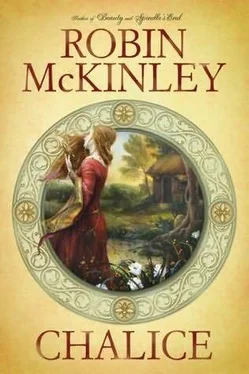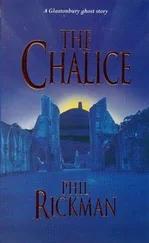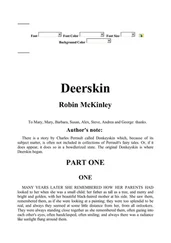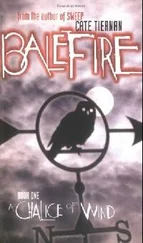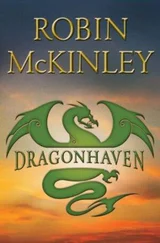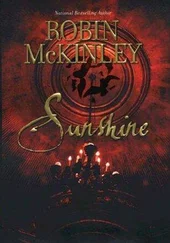But Mirasol had dared try to wield some of the power of the Chalice to keep her cottage, and her bees. She had declared her preference in a meeting with the rest of the Circle—declared it officially after having borne a series of unofficial attempts to persuade her to move into the House—and had worn her most gorgeous robes, and used the cup of decision, to bind the meeting. It was bad enough that the meeting itself had been at the House, with its heavy, disapproving air—and while no one but the Chalice should know the proper names of the Chalice’s vessels, any Circle member who chose to pay attention would be able to predict, over time, which cup came out for which sort of occasion. She was sure the Grand Seneschal guessed by the damning look he gave her when she offered him the cup of decision, but even the Grand Seneschal would not dare refuse a cup offered him by the Chalice. The Circle drank—and Mirasol kept her cottage. And her bees.
It was possible that the overwhelming presence of her bees had discouraged Landsman from deciding to reassign her woodright whole, which would have included the cottage for its new incumbent, when he came to view the situation and decide on his recommendation for its future. The bees seemed as integral a part of the scene as the cottage and the trees. Landsman had not stayed long nor said much, but he had bowed to her so resentfully when he left that she felt his decision couldn’t be against her or he would have been happier about it. And saying little could have been merely conservation of effort: the Circle had had to shout over the rumble of bees to make her hear their original news, especially since she couldn’t believe it even after her ears had taken it in.
Perhaps it was her bees who kept other, more ordinary visitors away. She reminded herself that even Selim had found her bees disconcerting when there had been far fewer of them—before the Chalice had come to her. At least since she had accepted what she could do nothing about, her bees had stopped swarming, and the rivers of honey had slowed to mere streams—and you could begin to hear yourself think again, and eventually conversations no longer had to be shouted—as if by her acceptance the power of the Chalice had begun to run in the channel where it belonged. However ill suited she felt herself to contain it. She tried to think of it sometimes as she thought of her bees, something apart from her that it was her duty to tend; but it was like trying to tend the sea you were drowning in.
If it was her bees that were keeping her old friends away at least this new attribute seemed to include keeping unwelcome visitors away also. The Grand Seneschal had once come to her cottage alone, to try to convince her, he said, that she would be better taking the Chalice’s quarters in the House. The underlying message was, she felt, that he wanted to keep an eye on her, and that would be easier at the House. Yes. And of the entire Circle she found him the most intimidating of all, so that at Circle meetings she had to keep reminding herself not merely that she was Chalice, but that she was also Second of the Circle. When she thought of meals taken daily either in the small House dining room, which was still large enough to seat twenty-six, with several of her fellow Circle members—either that, she supposed, or immured in her room with a tray like the Master—no. Or being walking distance from the outdoors—from grass and trees and weather and bees—instead of the other side of a single plain door: no again. It wasn’t possible. It was one of those things that she, Mirasol, within the Chalice, could not do.
She was aware also that none of the Circle, most especially the Grand Seneschal, wanted to believe that the particular vessel of her Chalicehood really was honey, and she was not pretending something so ridiculous (and unheard of ) from perversity—the personal perversity of wanting to keep her cottage and her bees. She wondered which was the chicken and which the egg: did the Circle wish her to be an ordinary Chalice so that they felt justified in trying to bully her into moving to the House, or did they hope she might yet become a proper Chalice if she gave up her bees—by moving to the House?
But her bees had promptly stung the Grand Seneschal—twice—and he’d left in some confusion. She’d chased after him with salve for the throb and the swelling. She hadn’t stopped him leaving for a fear a third bee would sacrifice herself to drive the interloper away. But since she needed the stingbalm so rarely herself, and since her bees were usually very well behaved (no matter how uneasy about them the visitor was), it had taken her a little while to locate it.
She’d insisted (panting from having run after him) that she put it on at once—although in hindsight she was surprised he’d allowed her to insist. He had one sting on one hand and the other on the opposite wrist. As he stood there with his hands held out they could both see the swellings subside, and he admitted (with a curious edge in his voice that might have been surprise, or indignation that he’d needed the healing, or that the healing had come from her) that the pain had stopped immediately.
She went home again slowly, hoping that he wouldn’t decide to order her to get rid of her bees. He couldn’t, in theory, order the Chalice to do anything, but in practise the Grand Seneschal could do just as he liked, and often did. He could certainly contrive to overturn the Landsman’s decision to let her stay where she was.
She took a big pot of her most popular honey to the Grand Seneschal the next time she went to the House, as an apology. It seemed to have worked. If anything—and she found it difficult to believe that the Grand Seneschal would have deliberately done her any service—it had benefited her, for she suddenly had more orders for honey from the Housemen and-women, almost as if some permission—even encouragement—had been given. And although the honey yield had subsided since the first flood after the death of the old Chalice, she continued to have more than she could sell to her usual buyers in and out of the House, so this was very useful—especially when the Circle members who had once been her customers dropped away. Only the Weatheraugur and the Talisman still bought honey from her. The Talisman, she knew, used it in some of the tokens she made for her Circle work; the Weatheraugur merely liked it on her bread.
One day the new Clearseer bought a pot of her honey, and when he came back a month later for a second pot he said he was using it in his scrying.
“I didn’t know honey was ever used for scrying,” she said tentatively.
“It isn’t,” he said. “But it is customary to use water if your Chalice is a water Chalice, and a little wine if she is a wine Chalice. At the moment everything looks unnaturally golden and wonderful—which is no bad thing, but perhaps not practical—but I still have hopes of creating a tradition.” He smiled at her: hopefully? Beseechingly?
She smiled back, and sold him a pot of her palest, clearest honey.
And Mirasol was glad of the money. She was going through quantities of paper taking notes and paper was expensive. (Sometimes she wondered why she found her increasing stacks of notes and notebooks such a solace, when the more of them there were the harder it was to find the annotation she was looking for.) Occasionally she’d been offered old manuscripts of Chalice records. She guessed they were black market, but she had no one to ask, or no one she was willing to ask (it was the sort of thing the Grand Seneschal would know how to find out), and she so longed to know everything . She’d once bought a particularly old mouldering one, because of its superlative oldness and moulderingness, and it had taken every penny she had. It had perhaps been worth it: it had been where she’d read of the one occasion when a Master had been put to death for harming his Chalice, which meant that she held the copy of that dangerous story, and not someone else. On the other hand it had rather put her off buying any more, because she felt a bit cautious about what else she might learn that she’d be glad to be spared.
Читать дальше
